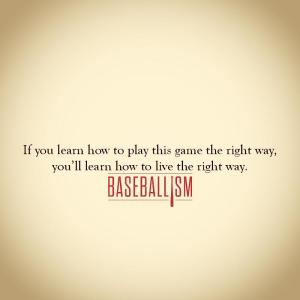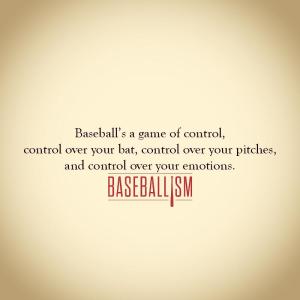*crickets*
Yeah…I’m still here.
I think with all the insanity that was during the paper process of adoption, I’ve needed some time to recover. I’ve been getting life back in order and doing things that went neglected for 3 months…like dusting.
Plus I basically live at the baseball fields right now.
I think baseball applies a lot to life, which is part of why I love the game. As I’ve been watching game after game recently, I’ve noticed something that keeps happening, and I can’t seem to shake how the issue really applies to all of life.

Which is part of why I jumped on over to share.
Coaching and teaching are basically the same thing. It’s no easy gig, and sometimes your students are less than eager to hear what you have to say. I am in no way negating the challenges that both roles entail, and have faced many of them myself. It’s time consuming, and you’re one of the first under fire when things go wrong. It’s a challenging position, but not one without rewards.
Before each of my sons games I watch the coaches gather the kids up and give them a big pep talk. Things like “we’ve got this”, and “you just have to want it” are over heard. Rah, Rah, get ’em team. Game time.
Inevitably, (because um, they are 9, and 6 and still learning baseball) something happens during them game. The team is in a pickle, blows a play, or is just having a rough night. And I watch the coaches yell. They start barking orders out and yelling at different players and the team. If a loss happens, the inevitable guilt trip speech comes. “We just didn’t want it bad enough,”, or we “didn’t have heart tonight” and of course “we’ll try harder next time”.

Admittedly at about 4-6 games a week, this all feels very routine to me, and I’m honestly just kind of over it.
Because here is what I’ve noticed about all these pep talks and expectations: The reason it isn’t working…the reason the team isn’t performing the way they want, or getting the win they thought they should have is pretty simple; they weren’t prepared. They weren’t taught, directed, and they weren’t equipped for the job at hand. You can’t expect a kid to know exactly where to stand in the outfield if you haven’t shown them, and you can’t expect a kid to know how to pick a base runner off if you haven’t taught them. And beyond showing them or telling them, you probably need to have them do it about 30 times before it’s drilled into their precious little heads.
I see this everywhere in life. I feel like I am surrounded by pep talks and guilt trips, and they just don’t work.
I feel like I live this daily (hourly!) in parenting. When my kids aren’t doing what I’ve told them…WHY? If it takes 10 minutes to tie one shoe and I keep getting frustrated at them about it, I think that’s more my issue than my kids. We go back to square one and make sure they know what they are doing, then rinse and repeat like 20 times. Rewards and/or encouragement for when they execute so they know when they are performing at the expected levels. We do this with grades too. If my kids didn’t get the kind of grades I thought they should, we talk about why. We go back to expectations (which is not all A’s, but doing their best), make sure they understand how to do the work at hand, and then reward them/encourage them when they execute the work and get the results that were expected.
If we are going to have expectations (which I think are fair, and good), we have to be logical about them. We must be clear and reasonable with expectations. State clearly what you want, how you want it done, and when you want it by. Make sure what you want can be feasibly achieved, if not we may need to alter our expectations. Make sure those you have the expectations of are EQUIPPED to fulfill those expectations. We have to equip and teach how to fulfill the standard that is set. This is the hardest part. We practice and train and teach and remind over and over and over and over. Finally ENCOURAGE. If you have stated clear expectations, and then equipped people to fulfill them, and then they do…they won’t know they are hitting that mark unless you communicate with them. We encourage and reward, and that helps confirm success and motivate to keep pressing on.
When our expectations go unmet, I think as leaders, teachers, parents, coaches, etc, we need to assess what our role in that is. Were we clear and reasonable with our expectations? Did we equip and enable them to fulfill the expectations? Did we encourage and/or reward when they achieved the expectations? If we are failing at any of those, we need to take responsibility and right the situation. Probably even apologize and own our part in it.
But for goodness sakes, lets stop the pep talks and guilt trips. We aren’t meant to operate based off emotion, and the type of performance that results out of a surge of emotion isn’t going to have long term results. You might get a child to tie their shoe more quickly when you are standing over them yelling at them, but they won’t duplicate the result again unless you are standing over them and yelling again. Nobody wants to be that person (speaking from experience).

So much grace is needed in all this. For those parenting, teaching and leading, and for those trying to do what is asked of them. No one is going to do it perfect. It’s a messy business, figuring out how to work together. But I think focusing on expectations, equipping and encouraging can benefit everyone in the process.
